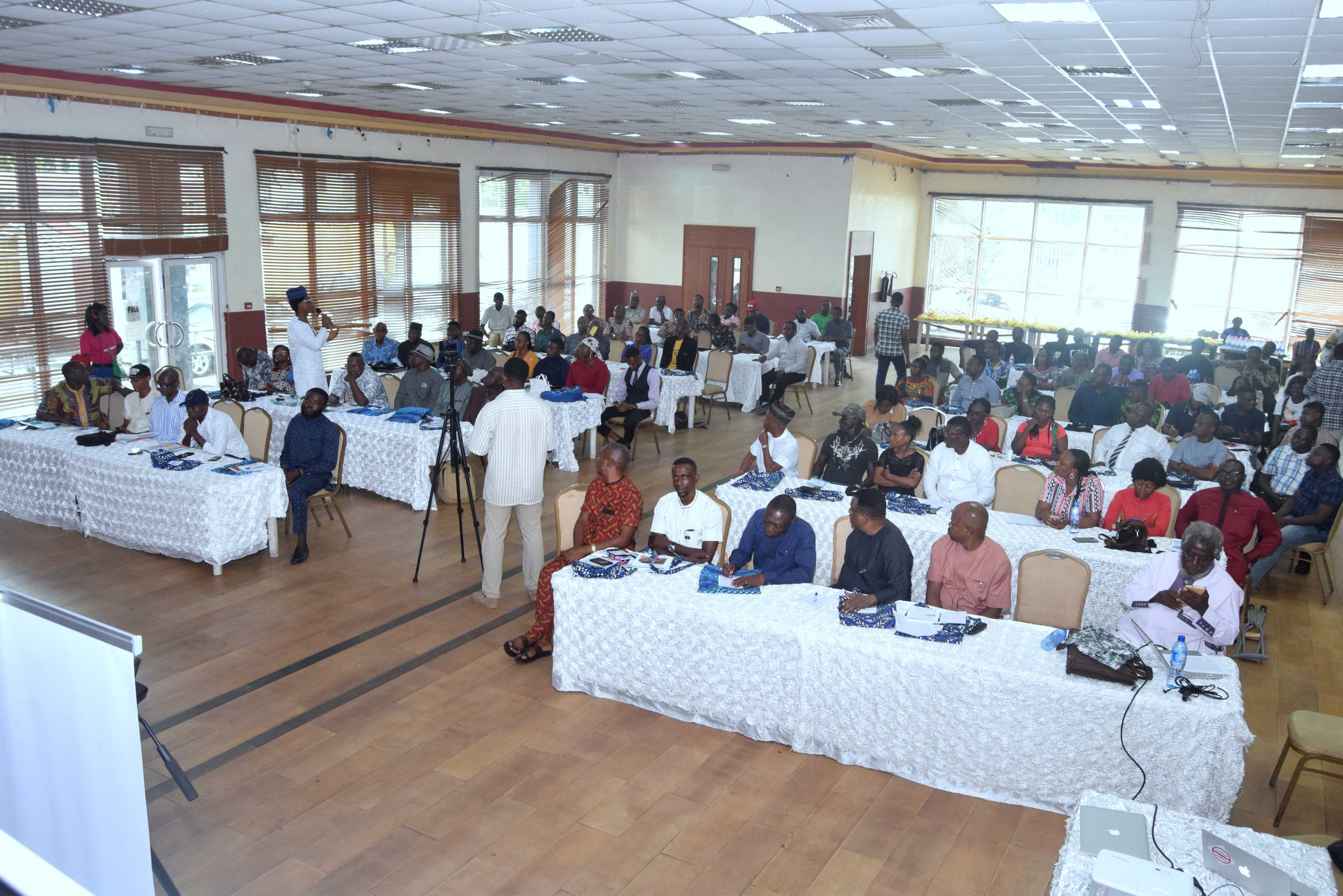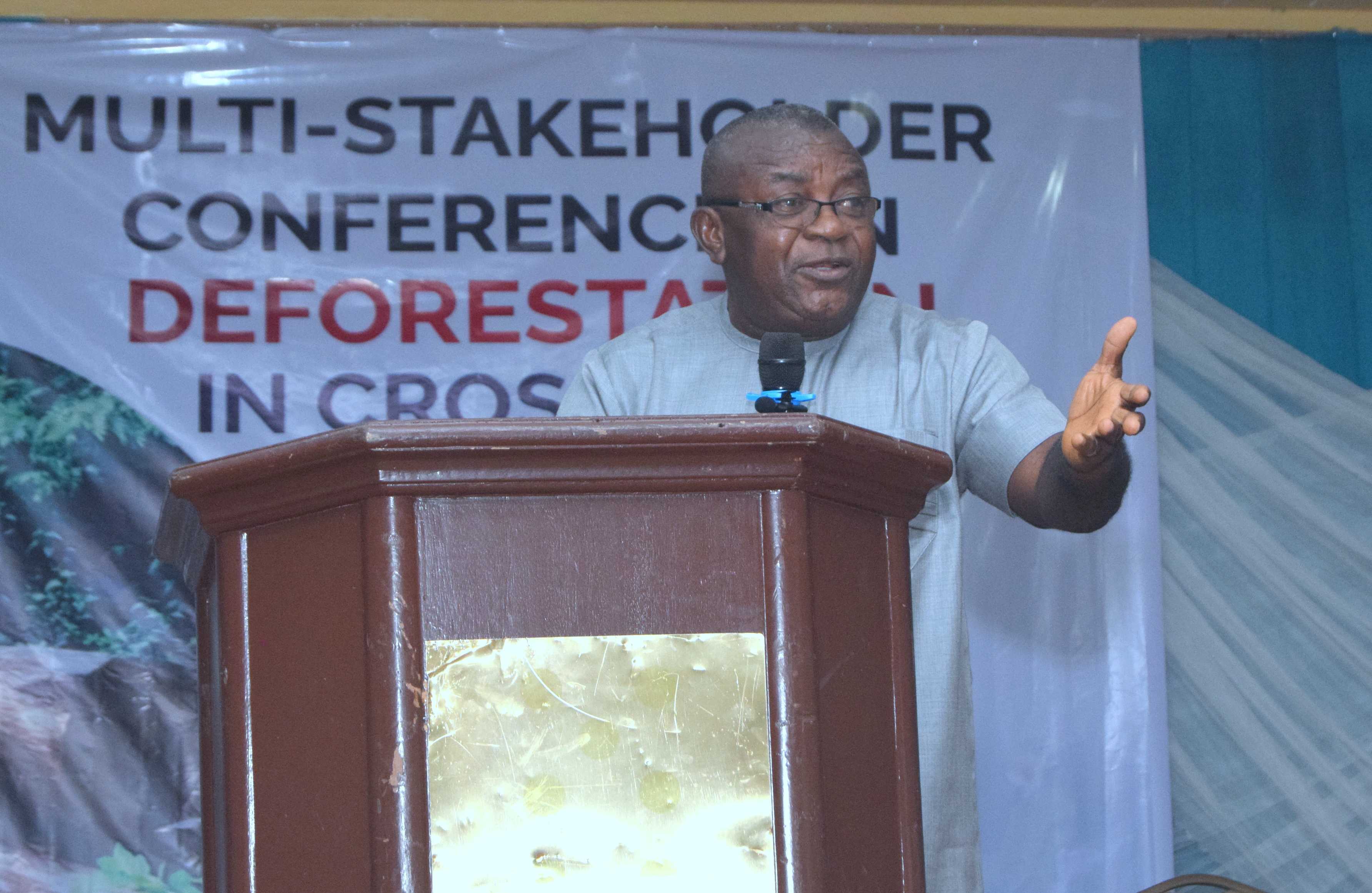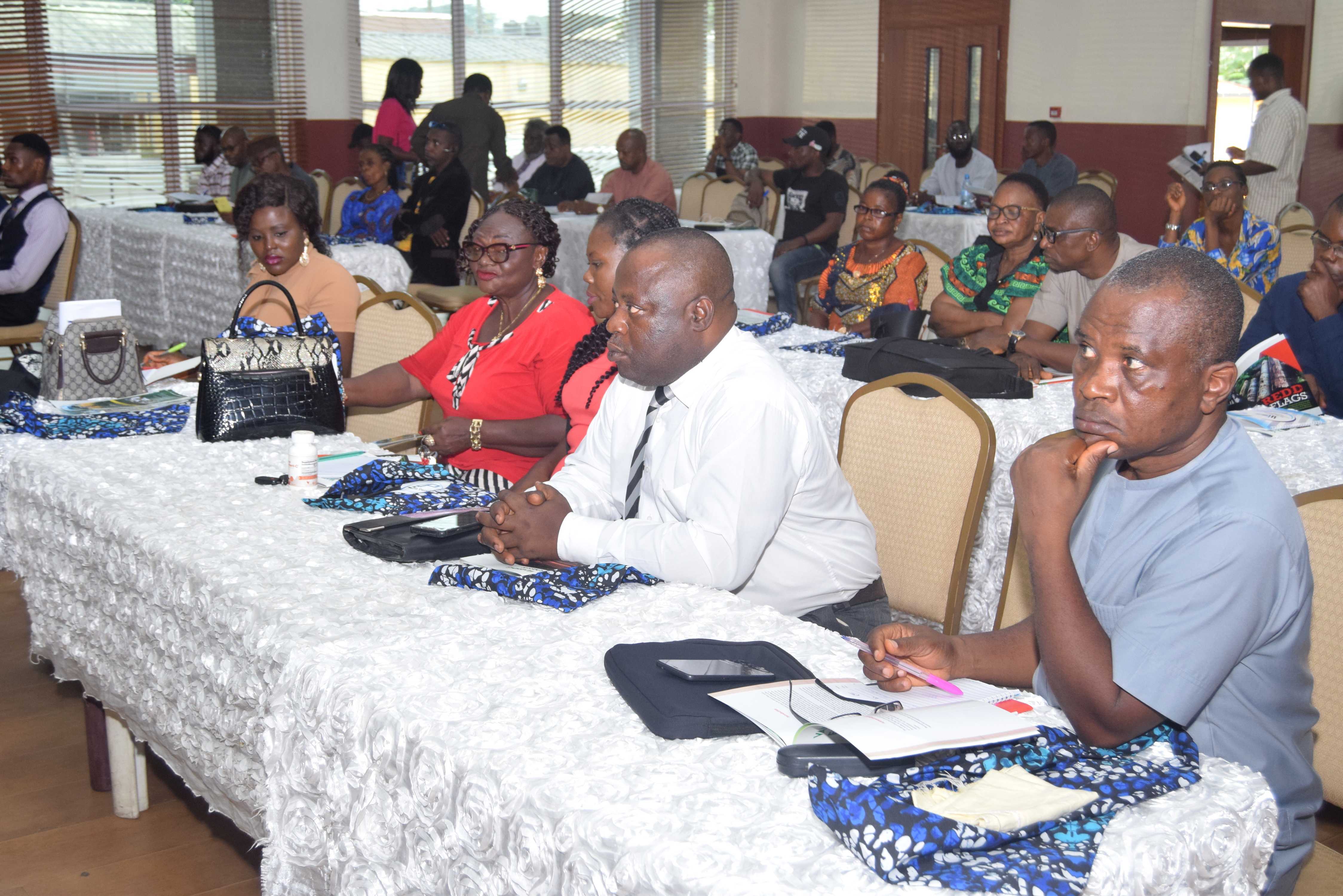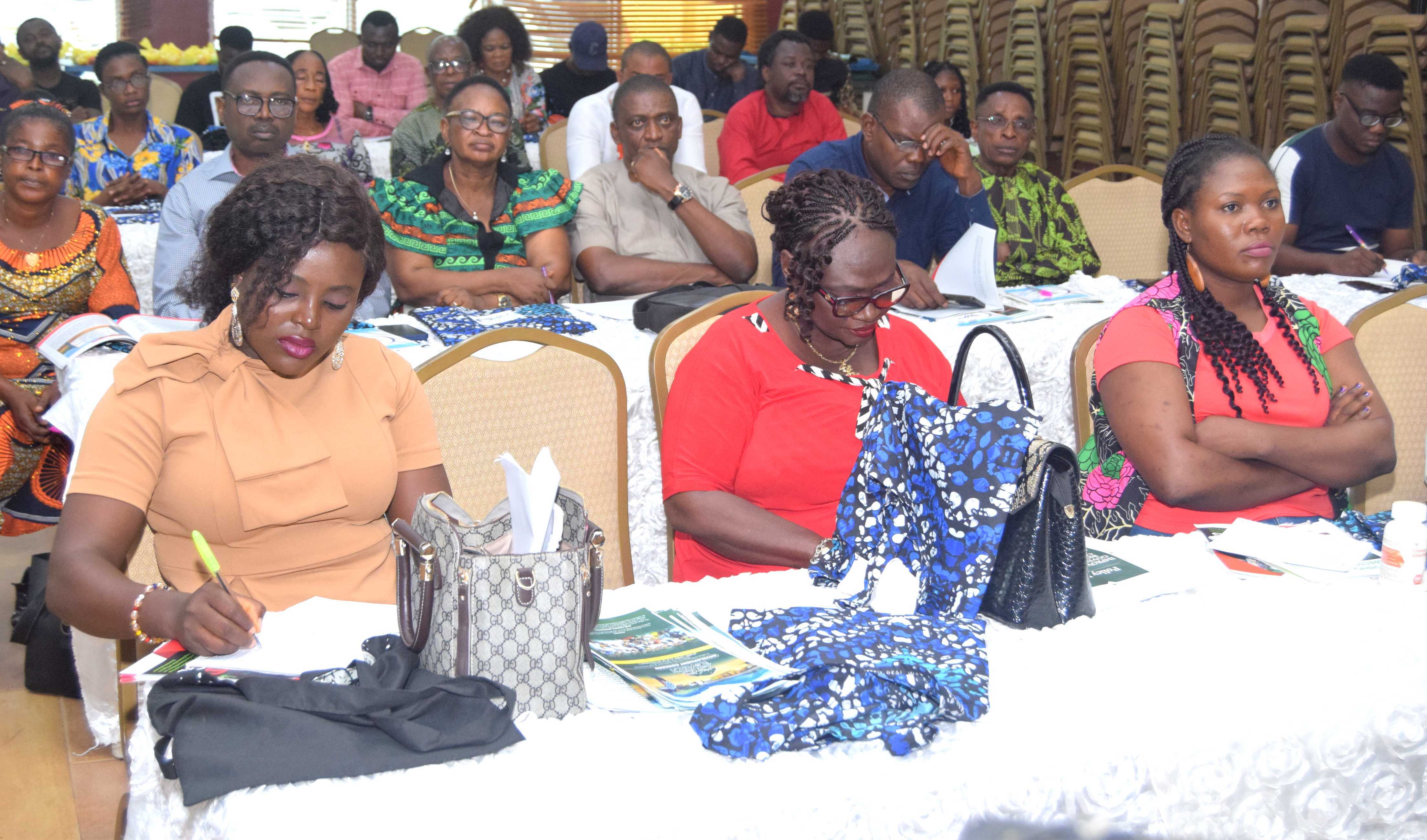By Patrick Obia
Stakeholders and deforestation activists in Cross River State have called on the electorates not to vote for any candidate not ready to protect the forests and other natural reserves.
The admonition was from a one-day multi-stakeholder conference with a focus on ending deforestation in Cross River State, organized by We The People (WTP) in collaboration with the Rainforest Resource and Development Center (RRDC) held Tuesday in Calabar, the Cross River State capital.
In separate remarks, the Executive Directors of WTP and RRDC – Ken Henshaw and Odey Oyama lamented the level of destruction and degradation of the Cross River forest from 1991 to date.
Mr. Henshaw said as of 1991, the total forest cover located in Cross River State stood at 7, 920 square kilometers, by 2008 the forest cover went considerable decline and drop about 6,102 square kilometers and occupy only 28.6% of the entire surface area of Cross River State while between 1991 and 2021, the State lost 1,514 square kilometers of forest cover, and between 2007 and 2014 for instance, the rate of deforestation has increased tremendously, leading to lost of 1,070 Square kilometers of forest in seven years.
Ken inferred that despite the moratorium on forest activities placed by the State Government 14 years ago, the state of deforestation has rather intensified, “at the moment, logging activities are taking a sinister dimension in Cross River State,” he said, adding that “We have also seen that the actions of Cross River State Government in the last one and a half decade have intensified the destruction of the rainforest.”
The Executive Director of Rainforest Resource and Development Center, Odey Oyama said the destruction and rapid degradation of the forest environment are destroying the pristine and highly valued tropical high forest of Cross River State; and ultimately reducing the State’s ability to participate effectively in the REDD program, the Global Climate Change Mitigation, and the Millennium Development Goals program of the United Nations (UN).
Odey averred that the Forestry Commission as an institution of government saddled with the statutory responsibility of sustainable forest management has been very negligent and complacent. Often, the Commission would maintain “a conspiracy of silence than wake up to its duties” whenever cases of illegal logging are reported to them.
Taking the keynote address, veteran environmentalist and former Chairman of Cross River State Forestry Commission, Dr. Odigha Odigha noted that virtually every community in Cross River is not spared of logging as trucks loaded with timber leave the State daily. He said the implementation of forestry laws in the State is an issue hitting hard.
Odiga identified funding into the forestry sector, planting trees, and employing competent hands to protect the forests as major challenges.
While charging traditional leaders, CSOs, and the academia among others who he said “are the custodians of resources,” he implored them to have a rethink and tell “themselves the truth by first ensuring forest governance is improved by electing someone ready to protect the State forest.”
Speaking on the topic “Policy framework on forest management in Cross River State” Professor of Ecological Architecture and Sustainable Urbanism, Prof. Ekpenyong Itam said there are laws regulating the Cross River forests and it is expected that all must know the laws.
Itam however posited, the problem is not the law, but a clear policy. He said, “We have not developed a policy that is capable of matching the present threat, and any time man is facing a threat and his capacity to manage the threat is below the threat he is overwhelmed.”
The erudite termed the deforestation and illegal logging in the State as the “greatest ecological disaster,” adding that: “We are using obsolete policies to match the current situation, that current situation has taken us possibly unaware but if we sit down we will understand; it doesn’t take much to analyze.”
Lecturing on “Drivers and pattern of deforestation in Cross River State” a lecturer and researcher at the University of Calabar, Dr. Raphael Offiong asserts that deforestation is becoming serious due to land grabbing, hunger, poverty, mindset, weak traditional institutions, illiteracy, and greed among elites are drives of deforestation.
Offiong said if the State Government is not involved in logging, the activity would have been stopped long ago. He, however, posited that logging could not be stopped except the rural dwellers and the poor are empowered.
Remarking in the conference, the Chairman of Boki Local Government Area, Mr. John Ewa expressed sadness about the illegal activity going on in his local government.
The Chairman spoke bitterly and accused highly placed State actors, Chiefs, personnel of the Nigerian Army, and other security agents of aiding logging. He further disclosed that he is handicapped despite a series of confrontations.
He fumed that if there is no guarantee the All Progressive Congress government or candidates will not protect the Boki forest, he has no business voting APC into power even as a card-carrying member of the party.
In the experts’ policy panel session moderated by Ken Henshaw, panelists identified a lack of political will and a government clear policy statement to curb the incessant deforestation in Cross River forests.
Mr. Frank Edu, a Director in the Forestry Commission of the State said the Commission is handicapped with no patrol vehicle while 70% of workers retired with only 50% of their forest guards across the State.
In the community panel discussion session moderated by Dr. Martins Egot, the Chiefs pleaded with the State Government to employ the increasing number of local youths so they can withstand the foreigner coming to log. Training and awareness creation was also affirmed as a way of shying the youths away from logging.
See pictures:










Leave feedback about this